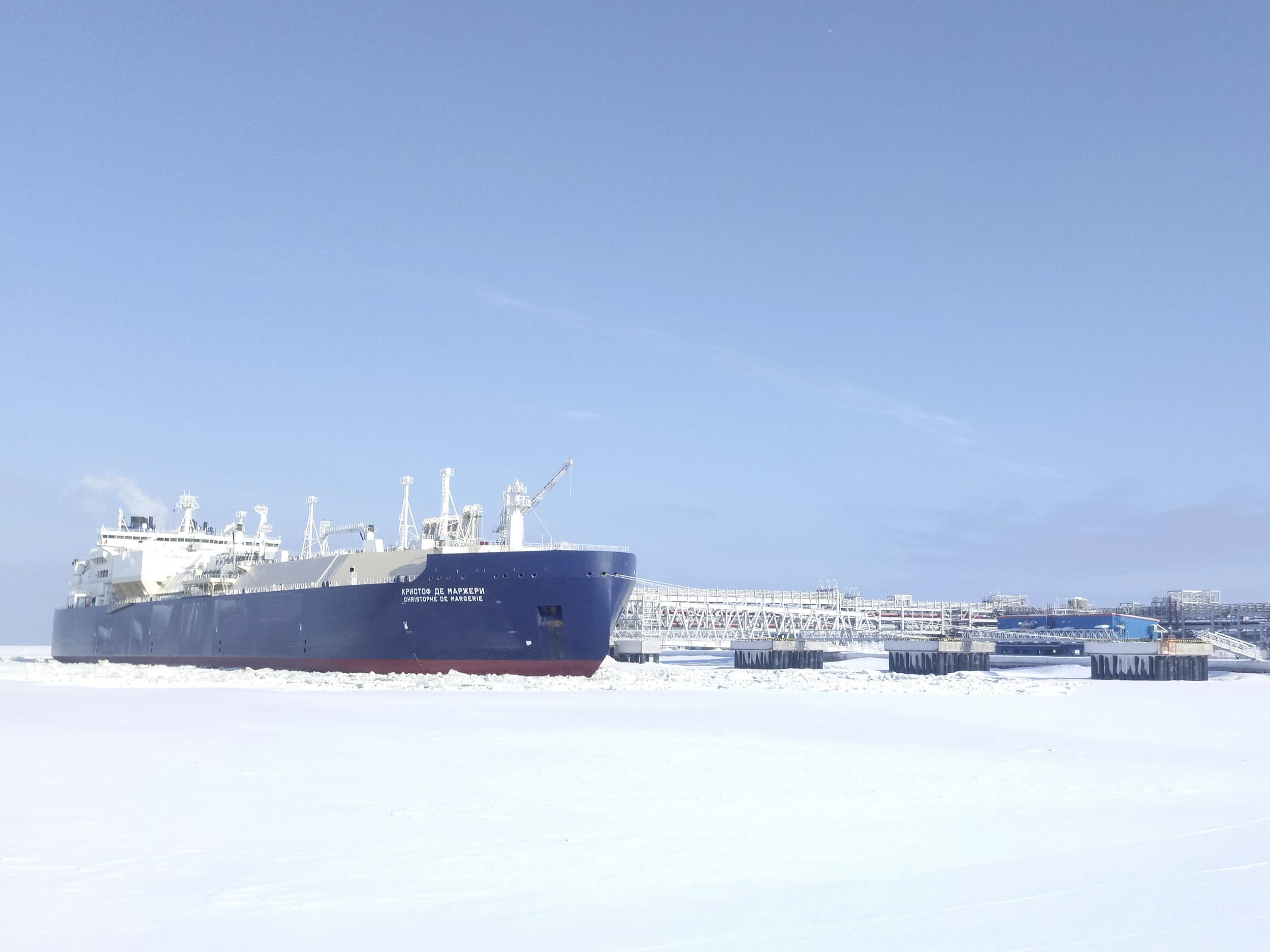China unveils plan for 'Polar Silk Road' across the Arctic
Superpower planning new shipping lanes through ice opened up global warming

Your support helps us to tell the story
From reproductive rights to climate change to Big Tech, The Independent is on the ground when the story is developing. Whether it's investigating the financials of Elon Musk's pro-Trump PAC or producing our latest documentary, 'The A Word', which shines a light on the American women fighting for reproductive rights, we know how important it is to parse out the facts from the messaging.
At such a critical moment in US history, we need reporters on the ground. Your donation allows us to keep sending journalists to speak to both sides of the story.
The Independent is trusted by Americans across the entire political spectrum. And unlike many other quality news outlets, we choose not to lock Americans out of our reporting and analysis with paywalls. We believe quality journalism should be available to everyone, paid for by those who can afford it.
Your support makes all the difference.China has outlined its ambitions to extend President Xi Jinping's signature Belt and Road Initiative to the Arctic by developing shipping lanes opened up by global warming.
Releasing its first official Arctic policy white paper, China said it would encourage enterprises to build infrastructure and conduct commercial trial voyages, paving the way for Arctic shipping routes that would form a “Polar Silk Road”.
“China hopes to work with all parties to build a 'Polar Silk Road' through developing the Arctic shipping routes,” the paper, issued by the State Council Information Office, said.
China, despite being a non-Arctic state, is increasingly active in the polar region and became an observer member of the Arctic Council in 2013.
Among its increasing interests in the region is its major stake in Russia's Yamal liquefied natural gas (LNG) project, which is expected to supply China with four million tonnes of LNG a year, according to the state-run China Daily.
Shipping through the Northern Sea Route would shave almost 20 days off the regular time using the traditional route through the Suez Canal, the newspaper reported last month. COSCO Shipping has also previously sailed vessels through the Arctic's northeast passage.
China's increasing prominence in the region has prompted concerns from Arctic states over its long-term strategic objectives, including possible military deployment.
“Some people may have misgivings over our participation in the development of the Arctic, worried we may have other intentions, or that we may plunder resources or damage the environment,” Vice-Foreign Minister Kong Xuanyou said at a briefing.
“I believe these kinds of concerns are absolutely unnecessary.”
The white paper said China also eyes development of oil, gas, mineral resources and other non-fossil energies, fishing and tourism in the region. It said it would do so “jointly with Arctic States, while respecting traditions and cultures of the Arctic residents including the indigenous peoples and conserving natural environment”.
China's Belt and Road initiative aims to connect China to Europe, the Middle East and beyond via massive infrastructure projects across dozens of countries, reflecting Xi's desire for China to take on a more prominent global leadership role.
Reuters
Join our commenting forum
Join thought-provoking conversations, follow other Independent readers and see their replies
Comments